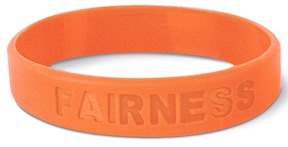Washington State’s Alcohol Law Need Further Fixing
 With Initiative 1183 in Washington State now recently passed into law by state voters and the state out of the business of selling spirits, it's time to fix this law.
With Initiative 1183 in Washington State now recently passed into law by state voters and the state out of the business of selling spirits, it's time to fix this law.
The primary flaw with Initiative 1183 is the requuirement that private stores selling spirits be 10,000 square feet or larger. When the initiative was written that requirement was placed in the law to assure critics that corner convienence stores and gas stations wouldn't be selling hard liquor.
While I disagree that such a provision is necessary, I do understand why small wine shop owners who have been selling wine responsibly for decades in their smaller stores feel like initiative 1183 isn't fair to them; that larger grocery stores and and big box stores will have edge.
There's a way to fix this problem: The Washington State legislature should pass a law that allow stores under 10,000 square feet that obtain more than 70% of their revenue from the sale of wine to sell spirits.
This would keep spirit sales out of gas stations and convenience stores, yet allow the most responsible alcohol vendors in the state to find a level playing field. For the next two years any amendment to 1183 must pass by a 2/3 vote in the legislature. After those two years are up, a majority vote will do the trick.
The Washington legislature shouldn't wait. they should immediately give parity to small wine stores and pass this fix. Whether the Initiative's author, Costco, would support this kind of law is unknown, but I suspect they just might support it. Initiative 1100, which had their support in 2010, but failed to pass voter muster, would have allowed these smaller stores to sell spirits.
This is a fix that promotes fairness. It's good for commerce. It's good for competitiion and it would be good for consumers in Washington.

Absolutely correct Tom. I think if the small retail wine shops in Washington could band together as a unified lobbying group, they could generate a lot of customer and media support for this “fix.” Only that will move this moribund Legislature to any action.
Tom, I wholeheartedly agree. RCW 66.24.371 stipulates a beer and/or wine specialty store license. An updating of this code to allow for the sale of spirits at stores with this license would be sufficient.
The law currently states that holders of this license must have 50% of gross sales be beer or wine and must have in excess of $3,000 inventory. In my opinion this would already be sufficient to eliminate all gas stations and many convenience stores. I believe the 10,000 square foot requirement was at best a gimmick. Either increasing the percentage of gross sales or upping the inventory dollar amount should be sufficient to eliminate all concerns regarding convenience stores. Hopefully small retailers will be able to band together to get this done.
While we are fixing the law, can you fix your headline – it’s making me nuts! It should read “Washington State’s Alcohol Law Needs Further Fixing”
Paul,
Ask and you shall receive.
Tom, you are absolutely right as usual. I look forward to working with you in the legislature this year to make this important change.
Paul Beveridge
Tom,
I absolutely agree except that I do think the initiative drafters were sincere in the 10,000 SF limitation as an effort to exclude mini marts. The public was solidly against mini mart sales, as evidenced by the amount of money the No campaign spent on blowing the rural area exception to the 10,000 square foot rule out of proportion.
We definitely now need to move forward to make our specialty beer and wine shops whole. Sean is right on the mark with the question of whether the 50% revenue threshold should be higher for shops wanting to sell liquor in order to affirmatively prevent the corner “stop and rob” from selling booze. How much non-alcohol sales does the typical specialty beer and wine shop derive from non alcohol sales in your experience Tom?